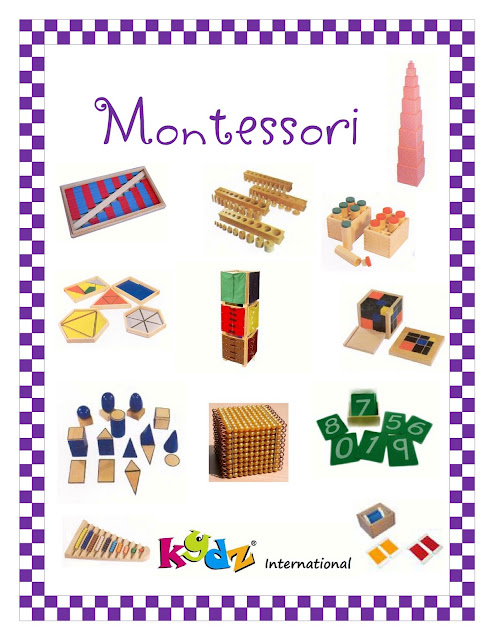What are the symptoms of autism?
If your child has autism, you will probably notice things that are different about them between the ages of 18 months and 2 years. But the signs may become clear even sooner than that. Or you may not notice them until later, when your child starts school.
Things you may notice early on
Things you may notice early on
Even very early on, you may notice that your child:[1]
Doesn't look when you call their name, even if they seem to hear other sounds
Doesn't look you in the eye much or at all
Doesn't notice when you enter or leave a room
Seems to be in their own world
Doesn't look where you do or follow your finger when you point to something
Doesn't point at things.
Usually, children will follow your finger when you point to something at about 9 months of age. And typically, children point to something they want at about 1 year of age.[2]
Some other things you may notice are that your child:[1]
Doesn't smile back at you
Some other things you may notice are that your child:[1]
Doesn't smile back at you
Leads you by the hand to tell you what they want
Can't do simple things you ask them to do
Has a lot of tantrums
Wants to always hold a certain object, such as a torch
Prefers to play alone
Doesn't play with toys in the usual way
Doesn't play pretend (children usually do this from 2 years of age).
Signs doctors look for
Doctors look for three main problems if they think your child might have autism.[3] [4] [5] Some children without autism have problems in these areas too. So you doctor will look at your child's overall pattern and how bad the problems are.
Problems with social activities
Even small babies take part in social activities. Within the first few months, babies look at faces and begin to smile, especially when they are smiled at. Babies also like to be cuddled and comforted with words, sounds and singing.
If your child has autism, they may be much less keen than normal about these activities.[6] Some children don't like to be picked up or cuddled.[7] A child with autism may prefer to just lie in their cot or sit in a familiar chair rather than get attention. They usually won't want to play with other children.
Children normally become very close to the main person who cares for them, usually their mother. And they get upset when this person leaves them. But children with autism may not react in this way. In fact, they may not even have much interest in their parents. This can upset you a lot if you are a parent. So can having a child who doesn't seem to give or need affection in the usual way. Children with autism can show affection, but it's in their own way.
Problems with communication
Communication is a big word. It's just a term for telling other people what we mean. We tell others what we mean in lots of different ways.
One way people communicate is by speaking. How much children with autism speak varies a lot. Some children say just a few simple phrases over and over, while others speak almost normally. A few children with autism don't speak at all.
About 1 in 6 children with autism speak only a word or two, once in a while.[8] [9] And unlike children with some other kinds of problems, such as a hearing problems, children with autism don't try to make signs either.
The other 5 in 6 children do learn to speak, but usually at a slower pace than normal. Most children without autism can use simple phrases of two or more words by the age of 2 years.[10] But if your child has autism, this might take much longer. Children with autism who are going to speak usually begin to do so by the age of 5 years. But they may only talk about their interests, or say the same things over and over.[7]
A child with autism may often say back words or phrases they have heard you say. This can be straight after hearing it or later. (But some children without autism do this too.) And your child may also have problems using the words 'I' and 'you' in the right way.
Some children with autism learn to speak a bit in their first year. But then they lose that speech in their second year. In other words, they seem to go backwards. To learn more, see Autism and speaking.
People communicate in other important ways too. For example, we look each other in the eye and show an interest in what others are saying. If your child has autism, they may not be able to do this naturally. And they may speak with a flat voice. Also, your child may cut in when someone is talking or may not know when to give others a turn.
Problems with behaviour
If your child has autism, they may have set ways of behaving that they do over and over. And they may be interested in only a few things. You can see this in the way that your child plays. For example, your child may want to send a toy car up and down the ramp of their toy garage over and over. They won't want to play pretend. So your child won't want to imagine going on a trip with his toy car.
If your child has autism, they may also need to have the same routines every day. The routine can have many steps, and they have to be done in the same order. Changing the routine in any way can upset your child a lot, more than you expect.
Some children with autism are fascinated with things that work in complex ways, such as toys that are like machines. Drawing, playing computer games or building with Lego may be fun for some children with autism. But they often do or make the same thing over and over.
Older children with autism may be unusually interested in very detailed facts. For example, they may get very focused on schedules for trains or on topics such as astronomy. Many children without autism have particular interests too. But in children with autism, the interest is more than you expect.
Other signs
There are other ways your child might be affected by autism too.
Problems with learning
More than 1 in 4 children with autism have intelligence that is below normal.[11] This means they have problems with learning.[12] Some children do well on intelligence tests, but they may not be able to pay attention, to hold on to an idea while doing something else and to make a decision quickly.[12]
Odd reactions to sounds, smell or pain
Some children with autism are very sensitive to sound. Your child may get upset by everyday noises, such as the sound of a vacuum cleaner. Or they may be able to hear sounds, such as planes in the sky, long before others in the same room.
Your child may have a strong sense of smell or taste. And they may be a very picky eater, eating only a few foods or only foods made in a certain way.
Some children with autism don't seem to feel pain. But this may be because they don't know how to tell you when they are hurt or they won't come for comfort.
Odd movements
If your child gets excited, they may flap their hands and arms. Or they might move their arms with their elbows bent and fingers in front of their face. Your child may be a bit clumsy. And they may rock, spin or bounce over and over.
Other problems with mental health
Many children with autism are very active. You may hear this called hyperactive. This means it's hard for your child to focus or pay attention for very long. Your child may not be able to sit still and may act before thinking. They may have problems sleeping too.
Some children with autism get anxious or depressed. Usually, this happens in older children and young adults. Also, some children with autism hurt themselves. For example, they may bang their heads against a wall or bite their wrists.[5]
All these problems can upset you and tire you out.
Problems with writing
Children with autism may have a hard time writing with a pen or pencil. This can be very frustrating for your child. Using a computer may help them get past this.[11]
Problems with physical healthAbout 1 in 4 people with autism get seizures.[5] But there are good treatments that can usually keep seizures under control.
References
Johnson CP. New tool helps primary care physicians diagnose autism early. AAP News. 2004; 24: 74. Available at http://aapnews.aappublications.org/cgi/content/full/24/2/74 (accessed on 11 March 2008).
Committee on Children with Disabilities. Technical report: the pediatrician's role in the diagnosis and management of autistic spectrum disorder in children. Pediatrics 2001; 107: 85.
Wing L. The autistic spectrum. British Medical Journal. 1996; 312: 327-328.
World Health Organization. The ICD-10 classification of mental and behavioural disorders: diagnostic criteria for research. 1993. Available at http://www.who.int/classifications/icd/en (accessed on 11 March 2008).
American Psychiatric Association. Diagnostic and statistical manual of mental disorders. 4th ed. Washington, APA. 1994.
Volkmar FR, Pauls D. Autism. Lancet. 2003; 362: 1133-1141. [Erratum in: Lancet. 2004 17; 363: 250.]
Folstein SE. Autism. International Review of Psychiatry. 1999; 11: 4.
Lord C, Risi S, Pickles A. Trajectory of language development in autistic spectrum disorders. In: Rice M, Warren S (editors). Developmental language disorders: from phenotypes to etiologies. Lawrence Erlbaum Associates, Mahwah, U.S.A; 2004.
Charman T, Taylor E, Drew A, et al. Outcome at 7 years of children diagnosed with autism at age 2: predictive validity of assessments conducted at 2 and 3 years of age and pattern of symptom change over time. Journal of Child Psychology and Psychiatry. 2005; 46: 500-513.
National Institute of Deafness and other Communication Disorders. Speech and language developmental milestones. Available at http://www.nidcd.nih.gov/health/voice/speechandlanguage.asp (accessed on 11 March 2008).
Chakrabarti S, Fombonne E. Pervasive developmental disorders in preschool children. Journal of the American Medical Association. 2001; 24: 3093-3099.
Baird G, Cass H, Slonims V. Diagnosis of autism. BMJ. 2003; 327: 488-493.
Glossary
seizure
A seizure (or fit) is when there is too much electrical activity in your brain, which results in muscle twitching and other symptoms.
© BMJ Publishing Group Limited ("BMJ Group") 2009



































